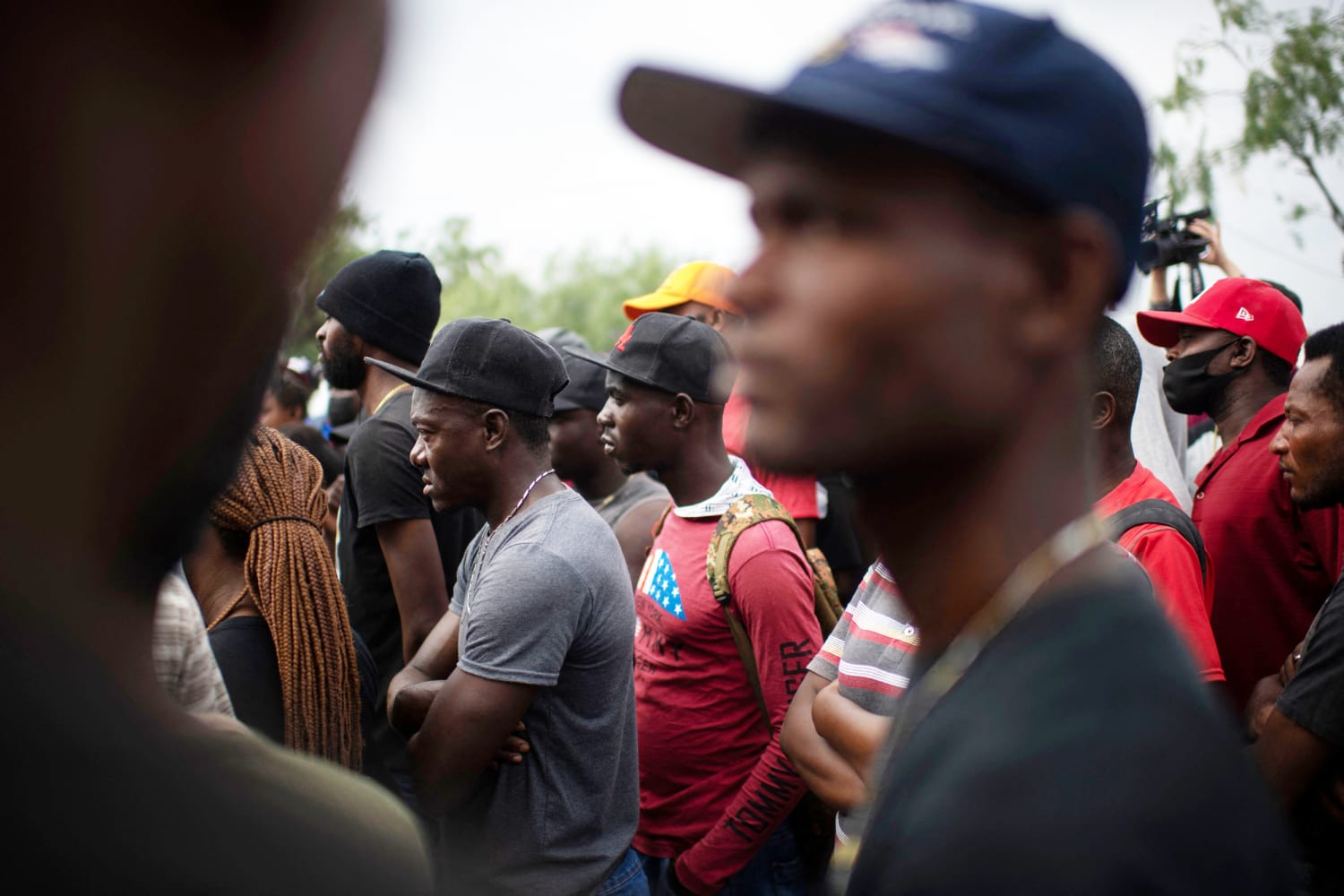The Biden administration is weighing options to respond to what could soon be a mass exodus of migrants from Haiti, including temporarily holding migrants in a third country or expanding capacity at an existing facility at Guantanamo, according to two U.S. officials and an internal planning document reviewed by NBC News.
Currently the White House National Security Council is asking the Department of Homeland Security what number of Haitian migrants would require the U.S. to designate a third country, known as a “lily pad,” to hold and process Haitian migrants who are interdicted at sea, and what numbers would overwhelm a lily pad country and require Haitians to be taken to the U.S. Navy base at Guantanamo Bay, Cuba, according to the document.
For more than 30 years, Guantanamo Bay has had a Migrant Operations Center that houses migrants picked up by the U.S. Coast Guard in the Caribbean. It is not part of the prison for alleged terrorists. Planning now under consideration would roughly double the capacity at the Migrant Operations Center to 400 beds, according to the document.
In late September, violent gangs seeking to overturn Haiti’s government staged a land blockade of the nation’s main fuel supply point, blocking fuel from leaving the depot and thwarting the hopes of those seeking to leave the country by boat.
The Biden administration predicts that when the fuel is no longer blocked and migrants are able to buy gas to power boats, there could be a mass exodus of Haitians attempting to make the dangerous journey to the U.S. by sea, the U.S. officials said.
In recent days, the White House National Security Council has hosted a series of meetings on the issue, involving the Departments of Homeland Security, Defense and State.
The Biden administration received bipartisan criticism for its handling of a massive flood of Haitian migrants in September 2021, which led to more than 12,000 massing under an international bridge in Del Rio, Texas. Most of those migrants, however, had left Haiti many years prior to seek work in South and Central America and tried to cross the U.S.-Mexico land border as their economic opportunities began to dry up in countries like Brazil.
The Biden administration ramped up deportation flights to deal with the influx, but so far those flights have halted since August 2022.
A spokesperson for the NSC said, “The United States remains committed to supporting the people of Haiti. We recently delivered Haitian government-purchased security equipment, including tactical and armored vehicles and supplies, that will assist the Haitian National Police in their fight against criminal actors inciting violence.”
The spokesperson also said USAID and the Centers for Disease Control and Prevention have staff on the ground in Haiti responding to the country’s cholera outbreak.
A DHS spokesperson said the agency “continues to closely monitor the situation in Haiti and there are longstanding contingency plans ready in the event of a surge in maritime migration. As we have repeatedly said, irregular maritime voyages in the Caribbean are always dangerous and very often deadly, and we urge individuals not to put their lives at risk.”
“DHS components, including U.S. Border Patrol, Air and Marine Operations, and the United States Coast Guard, along with our federal partners, maintain a continual presence with air and sea assets in the Florida straits and in the Caribbean Sea, as part of a multi-layered approach to interdict migrants attempting to enter the U.S.,” the DHS spokesperson added.
Source: | This article originally belongs to Nbcnews.com










